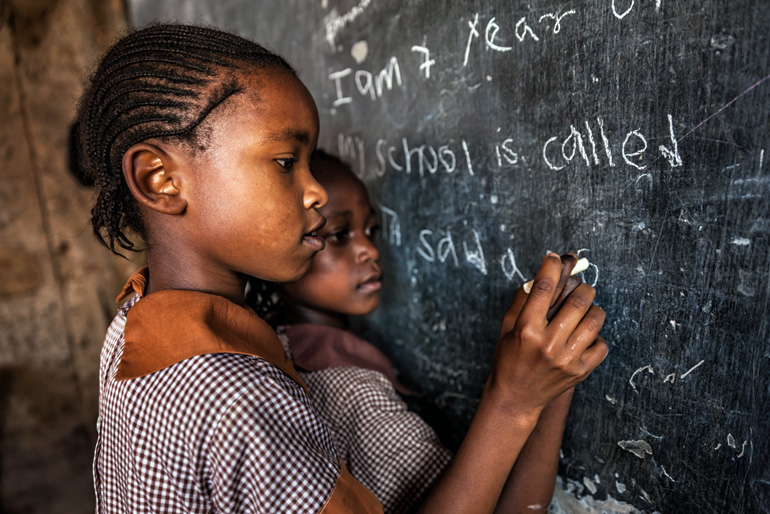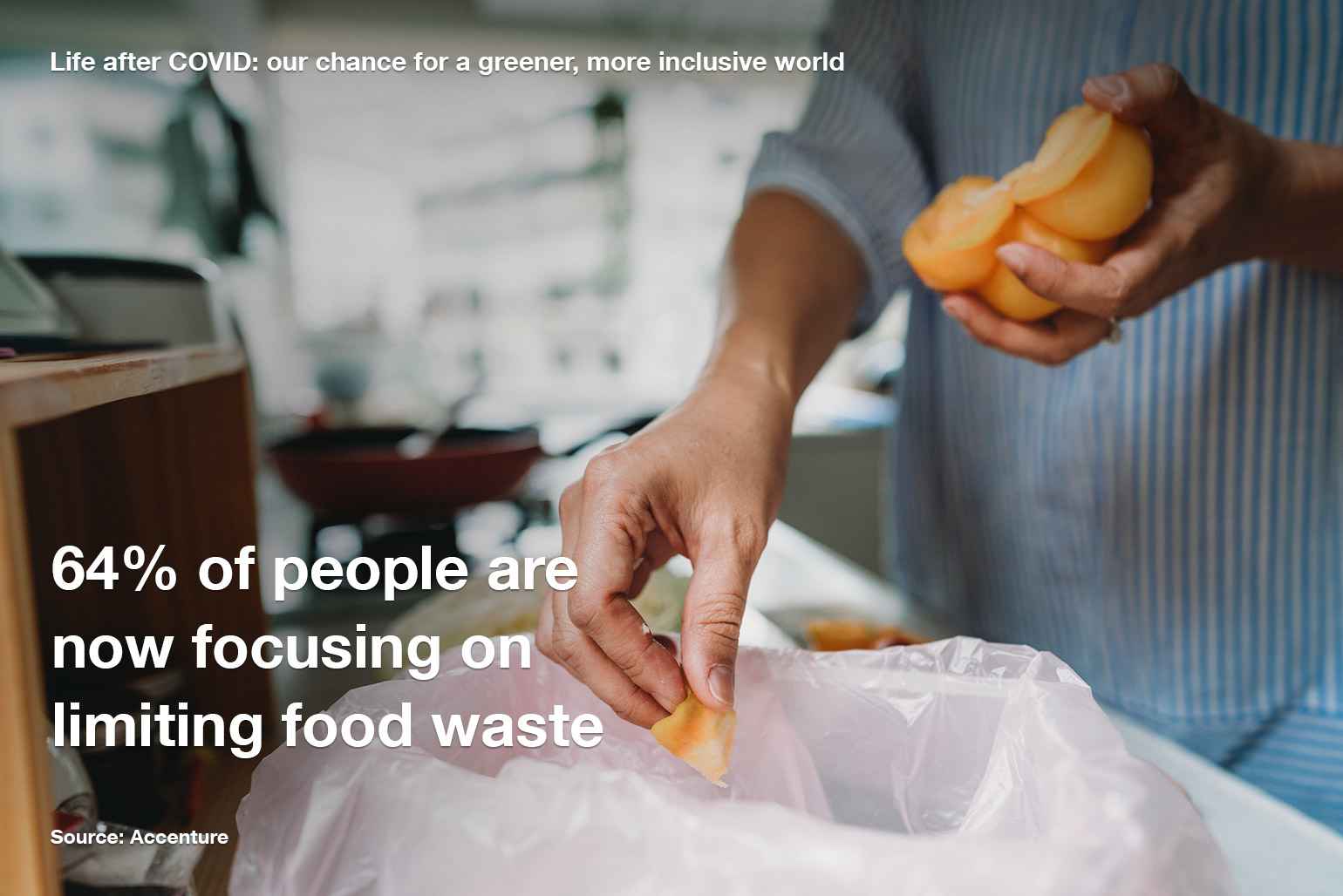Life after COVID: our chance for a greener, more inclusive world


Something remarkable is happening in Pakistan. Day by day, it’s getting a little greener. Why? Because the government has recently hired 65,000 workers who became unemployed due to COVID-19. Their task is simple, but challenging: to plant 50 million new saplings by the end of the year.
The move is part of an existing project that started in 2018, which aims to introduce a staggering 10 billion new plants in total. As local economist Talat Anwar told Xinhua News Agency, “This is an excellent initiative which can help a number of unemployed labourers struck by the virus, and at the same time help mitigate the adverse effects of climate change on the livelihoods of the people in the country.”
It’s proof that when times are hard, there is an opportunity for companies and individuals to come together. It’s also an opportunity to ask exciting questions, like: is the world at a tipping point for ethical and ecological practices?
Alexander Kennedy, Director of Sustainable Finance at Standard Chartered, believes this is a chance for the world to bounce back both better and greener. “Everyone’s seeing record lows in pollution, looking up at clean skies, and hoping that when COVID-19 subsides that we can continue to see progress in clean energy. People have shown we can mobilise at scale and speed to solve some of the world’s biggest development challenges.”
It all adds up to fundamental change — but what do those advances look like?
Business priorities seem to be evolving, with the pandemic serving as the wake-up call. Two days before Earth Day this year, the US department store chain Nordstrom unveiled its new green goals. It aims to reduce its single-use plastics by 50 per cent and donate USD1 million to support research into textile recycling.
Nordstrom president Pete Nordstrom said, “Environmental sustainability needs to be a priority for our company,” adding that “through this COVID-19 crisis, we’ve been given a unique opportunity to […] rethink what kind of company we want to be for our customers, employees and shareholders.”
As well as being kind to the environment, we need to be kind to each other. We may not be working in the same physical space, but it’s more important than ever to look after friends and colleagues. Studies like Stanford University’s analysis of travel company CTrip have shown that while working from home can boost productivity, it can also make us feel more lonely.
To help our teams feel supported, the Bank created a guide to inclusivity in lockdown. It encourages employees to check in with colleagues and host virtual ‘tea and talk’ calls to foster a sense of community. Initiatives like this are the right thing to do — and the smart thing. Inclusive organisations are more collaborative, creative and better at retaining talent. The modern workforce actively expects businesses to have inclusivity hardwired into the way they work — those that don’t are lagging behind.
As we support our staff, we also want to support the wider world. Our recent USD50 million donation is also designed to help those who need it the most. From this fund USD5 million has been donated to UNICEF and the Red Cross, for urgent medical support and educational help for vulnerable children in 12 countries. Going forward, we’re providing USD25 million to train young people to regain employment, and funding small businesses to help them get back on their feet.
This and our USD1 billion of funding, at preferential rates, for companies fighting COVID-19, are just some of the ways we are bringing our values to life. “It’s at times like this that you really show what your organisation stands for. It comes down to putting purpose before profit,” says Alexander.

Some businesses have turned temporary pandemic measures into permanent ones. Twitter’s leadership has announced that employees can now work from home forever, a move that will cut carbon emissions from commutes and business travel. At the Bank, we’re evolving too. “What’s been amazing, and what I hope to see applied to our organisation even more in the future, is our ability to be really agile,” says Alexander. “If you’d told me six months ago that most of our staff would be working from home, or we’d be creating new financial vehicles from scratch to help those that need it most at this speed, I wouldn’t have believed you.”
Changes are also happening among consumers, who are thinking more ethically about how we buy. Accenture’s mid-pandemic survey of consumers across 15 countries found that 64 per cent of people are now focusing on limiting food waste. Meanwhile, 45 per cent now make more sustainable choices when shopping, adding that they will continue to do so going forward.
The report also noted that digital adoption and e-commerce have surged, which could result in lower carbon emissions from travel. “The scale of the changes identified in our findings clearly suggest that this is a long-term shift,” said Oliver Wright, managing director and head of Accenture’s global Consumer Goods practice. He added, “what’s surprising is the scale and pace — compressing into a matter of weeks changes that would likely have taken years.”
While commuting and travel have cut carbon emissions, a working from home digitally connected world brings its own impact. A pre-COVID study by Lancaster University found that the energy needs for internet use is anticipated to reach 21% of the global electricity demand by 2030.

Fighting the challenges that have sprung up from the pandemic is crucial. But it’s important not to take our eyes off pre-COVID issues. Food supply, renewable energy, education, gender equality: these should not be forgotten. “Things like reducing preventable blindness, which is one of our projects — we still have to ensure that capital flows towards those efforts,” Alexander explains. “Because those problems don’t stop because of the pandemic; if anything they can get worse.”
One of the Bank’s signature Sustainable Finance products is a deposit that helps to finance activities that align with the United Nations’ Sustainable Development Goals. As the pandemic spread, the team feared interest in the product would nosedive as corporate investor liquidity vanished. Instead, the opposite happened. Since January of this year, a record flow of over USD1 billion has been added to the deposit fund.
At a time when you could expect inertia, some investors are showing that they want to make a positive difference with their money. And like the millions of trees being planted in Pakistan, or the retailers ditching single-use plastic, it’s one more indication that hopefully, the roots of a better world are taking hold.